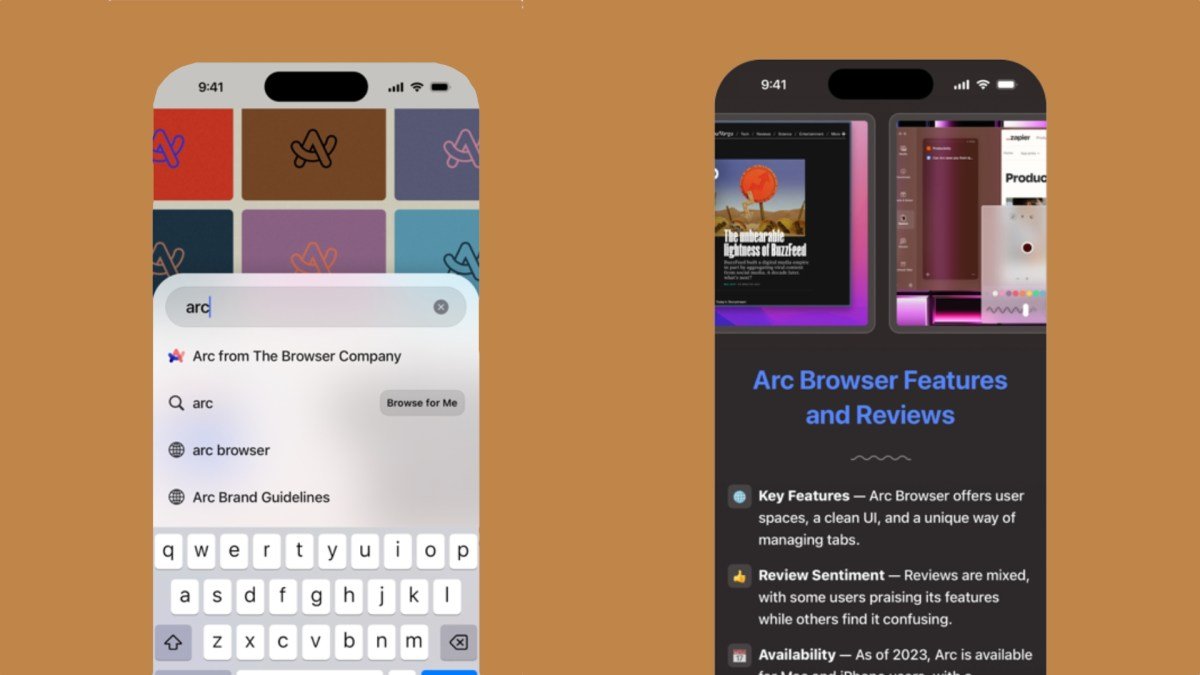The Browser company’s Arc, a browser focused on a less cluttered web experience, has launched a new feature on its mobile app Arc Search: AI-powered summaries of web pages. This unique feature uses a clever “pinching” gesture to display a neatly formatted summary with main points.
The feature has caught the attention of users due to its innovative approach to interacting with AI. However, there are also concerns about how it may impact traffic to news publishers, including ourselves.
There have been previous efforts to incorporate AI-powered summaries into browsing experiences, such as Instagram’s co-founders’ now-defunct app Artifact and Google’s Search Generative Experience’s web page summarizing feature. However, what sets Arc’s pinch-to-summarize feature apart is its user-friendly design and gesture-based interaction, which has generated buzz on social media platforms like Threads and X.
If you have the latest version of Arc Search on your iOS device, you can simply pinch the screen while on a webpage to see a summary generated by AI, featuring key points.
As described by Josh Miller, Co-Founder of Arc, this is “maybe my favorite feature we’ve ever shipped.” He explains that the gesture mimics the motion of pinching to zoom out, while the webpage folds down in an origami-style and the summary appears. Miller also highlights the convenience of this feature for when people send links while on the go, saving time and creating a more enjoyable browsing experience.
The gesture is cool to use and look at, because when you pinch a webpage, it folds in an origami style while the browser generates a summary, and the transition effect is smooth. And this effect is more satisfying because of subtle haptic cues.
However, in our testing, we found that the AI summaries themselves often miss the mark. For example, we updated an older story to address the online hoax that Google is discontinuing Gmail, adding information that the rumors are false and the company is only discontinuing the basic HTML view. Unfortunately, Arc’s summary did not pick up on this crucial detail added on top of the original story.
There were also some other glitches we encountered. When attempting to summarize a recipe page in Hindi, the function did not work properly, and all we saw were basic points like prep time, cook time, and calorie count without any actual information on how to make the dish. Other users have also noted that the summary feature does not support other languages. We have reached out to Arc for clarification on language support and will update with any new information.
On an English-language page detailing a recipe for baking chocolate cookies, we received a decent summary generated by AI, including ingredients, recipe instructions, and additional tips. However, we had to scroll down to access this important information as it was not included in the summary if we did not scroll down first.
When reading an article about the upcoming Indian Premier League (IPL) cricket tournament’s schedule, the AI summary missed a crucial point about one part of the schedule being released only after the dates for the general elections in India were announced.
When Arc Search attempted to summarize Bluesky’s blog about federation, the resulting text felt robotic and did not provide a thorough explanation of key points such as moderation that might be important for users.
Overall, the feature does generate useful summaries for many articles and pages, but we felt the need to double-check and ensure we were not missing critical information. As shown in the examples above, AI is not always reliable in capturing the most important information, making it difficult to fully rely on the summaries unless the missing information is not essential. While this is just the initial version of Arc’s feature and they have limited space to fit in all points of a summary, there is still room for improvement.
That being said, this is not an issue solely with Arc’s summary feature, as other AI-powered tools have also shown similar limitations. For example, both Perplexity and ChatGPT missed the update regarding the Gmail hoax mentioned in the above-mentioned article, and Gemini provided a useless summary of the IPL schedule article.
The concern about Arc’s approach potentially harming journalism has been raised by several journalists, including Casey Newton from The Platformer, who discussed how it may negatively impact the web and journalism as a whole. Additionally, Ryan Broderick of The Garbage Day newsletter wrote a column for Fast Company addressing how AI-powered search tools are not considering the implications of their approach on websites and people’s motivation to contribute to the web.
While these are valid concerns for publishers, they are also relevant for news consumers. If AI is not thorough in generating summaries, it may not be reliable as a source of accurate information. Therefore, users must be cautious and verify information before trusting summaries.
Currently, Arc Search’s summary feature does not include the source’s link with the generated summary. This could be troublesome for individuals using the feature, as they would need to click on the source’s link to read the full article. (We have reached out to Arc about the possibility of introducing this feature and their plans for improving the accuracy and reliability of the summaries moving forward.)
In its recent update, Arc also added new features to the browser, including making pages generated by the “Browse for me” AI-powered search shareable and ensuring that links within these pages are clickable for easy navigation. They have also added an incognito mode for the mobile browser, further improving the privacy and security for users.
There is an ongoing discussion about the value of data for AI and how it can benefit content creators. While AI features may occasionally overlook minor mistakes or omit insignificant details, it is vital for companies charging a premium for AI tools to ensure their accuracy and reliability.








